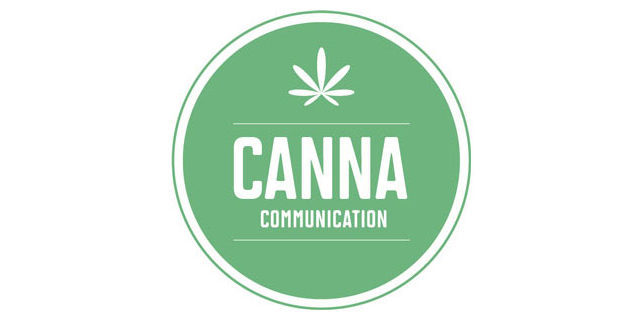Every day we hear from people who are interested in starting a marijuana microbusiness.
Yay, you! We want you to have a marijuana microbusiness, too, but we also don’t want you to get your hopes up without having some basic facts. This is a challenging industry, it’s very competitive and expensive. If you’re up for the challenge of starting a marijuana microbusiness, read on!

- Microbusinesses are not that different than any other marijuana business in that you’ll need to locate in a city, township or village that has opted in for recreational marijuana and for the business you want to create. For instance, if you want to create a consumption lounge, you’ll need to find a municipality that has created zoning for a consumption lounge. Some places are only allowing specific kinds of adult-use/recreational licenses. You can’t have a microbusiness in your home unless you’re a marijuana consumption event planner.
- There aren’t many places in Michigan welcoming to adult-use/recreational marijuana licenses of any sort, at least not yet. You’ve probably read articles about how most municipalities have opted-out. We believe this will change this year and next. We HIGHLY recommend if you desire a specific location, start meeting with and persuading the municipality of your choice to opt-in. Many municipalities opted-out to take a wait and see period—if yours is one that did that—it’s time to start building your case. There’s no guarantee of success when working with elected officials, but you need to start working on this angle if you have a specific area in mind.
- Once you locate a municipality, you will need to find a property that meets the local zoning ordinance. This is easier said than done. Finding the right property in the right municipality for the right price will likely be the hardest part of starting up your Michigan microbusiness.
- You’re going to need a lot of money. Just because this is a microbusiness application you’re seeking, that doesn’t mean micro-cash. For instance, just to have your application reviewed by the State, you’ll need to pay a non-refundable $6,000 application fee, and an annual assessment to $8,000. You’ll also need to locate a property that’s zoned for your business, and either purchase or lease that building. There are hundreds of items, small and large, that you’ll be paying for as you move forward. We recommend that you hire an accountant to help you keep track of your expenses. If you’re in a social equity community and qualify, you can save some money on some of the state fees.
- Get your paperwork in order. You’ll need to create your business structure, determine if you’re want to be an LLC or a corporation, as well as determine the best tax status for your company. Make sure your partners are on board with the risk and the amount of time the start-up phase of this business will take. Starting a marijuana microbusiness takes a lot of time!
- You also may want to consider getting prequalified under the MRTMA as many municipalities require pre-qualification in order to apply for a municipal license. This will also give you the certainty to start spending money since you won’t know for sure whether the state will allow you to own a marijuana microbusiness until you become prequalified.
- The state microbusiness license, while less burdensome than a medical marijuana business license, still takes an effort to complete. You need to round up your tax paperwork from the last year, be ready to explain in a narrative form any missing paperwork or discrepancies; you’ll need to speak to any legal action against you and no matter how minor the misdemeanor or lawsuit, you need to address it. You’ll be going through a thorough background check and it’s best to explain and provide paperwork for anything that has happened in your background that involves law enforcement, recent litigation, or taxes. If you’re not good at this kind of detail work get some help.
- You’ll need to secure and pay for local marijuana business permits and/or licenses. For the most part, that’s usually $5000.
- At the same time you’re making an application for a marijuana microbusiness license you’ll need to have a business plan and a social equity plan completed. While the state does not require much for these plans, oftentimes a municipality will. A business plan is typically comprised of two parts: financial projections and a narrative. Business plans need to be completed with care and attention–not only for State or municipal review–but so that you will have a plan of attack and can hit the ground running.
- As soon as you have a permit to get started with a building, you need to determine if your DBA is the actual name of your business, and if not, you can start working on what you want it to be. You’ll need to find a website URL and develop a strategic marketing communication plan to guide you as you get ready to launch.
Still ready to do this thing? GREAT! If you need help with anything microbusiness-related, give us a shout or even better, hop on over to our partner site Marijuana Microbusinesses and find out more.



 Public Health Dr. Larry Wolk said this:
Public Health Dr. Larry Wolk said this:  will be able to major in medicinal plant chemistry at NMU, which offers America’s only bachelor’s degree in cannabis program.
will be able to major in medicinal plant chemistry at NMU, which offers America’s only bachelor’s degree in cannabis program. test, transport or provision medical marijuana. Dispensaries were threatened with closure by a state board, politicians stepped up to keep them open, liquid capital rates were set, municipalities opted in or out, and application materials were created. The licensing portal opened on December 15 and now we wait to see who will be first to show off their piece of legal paperwork.
test, transport or provision medical marijuana. Dispensaries were threatened with closure by a state board, politicians stepped up to keep them open, liquid capital rates were set, municipalities opted in or out, and application materials were created. The licensing portal opened on December 15 and now we wait to see who will be first to show off their piece of legal paperwork.
 little practice.
little practice.  and brewers are vital to
and brewers are vital to 
 7)
7)